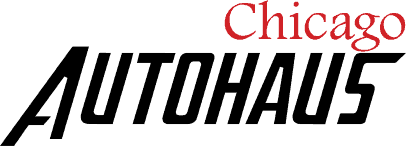Hit and Run Accidents: What to Do and How Insurance Can Help
Being involved in a hit and run accident can be a distressing and frustrating experience. In such situations, it is essential to know how to handle the aftermath and understand how insurance can assist you. This article will provide you with a step-by-step guide on what to do if you find yourself in a hit and run accident, as well as how insurance coverage can help you through the process.
Step 1: Assess the Situation
Immediately after the accident, it is crucial to stay calm and assess the situation. Check yourself and any passengers for injuries. If anyone requires medical attention, contact emergency services right away. If everyone is safe, proceed to the next steps.
Step 2: Gather Information
Collect as much information as possible about the incident. Take note of the time, date, and location of the accident. Look for any witnesses and obtain their contact information. Additionally, try to remember details about the other vehicle involved, such as the make, model, color, and license plate number. If possible, take pictures of the scene and any damage caused.
Step 3: Contact the Police
Call the non-emergency police line to report the hit and run accident. Provide them with all the information you have gathered. A police report will be essential for your insurance claim and potentially for locating the responsible party.
Step 4: Notify Your Insurance Company
Reach out to your insurance company as soon as possible to report the incident. Provide them with all the details and evidence you have gathered. They will guide you through the claims process and explain the coverage available to you.
Step 5: Uninsured Motorist Coverage
If you have uninsured motorist coverage as part of your insurance policy, it can be incredibly beneficial in hit and run accidents. This coverage is specifically designed to protect you in situations where the responsible party is unidentified or does not have insurance. It can help cover the costs of repairing your vehicle and any medical expenses resulting from the accident.
Step 6: Deductibles and Coverage Limits
Review your insurance policy to understand your deductibles and coverage limits. Depending on your policy, you may be responsible for paying a deductible before your insurance coverage applies. Additionally, there may be limits on the amount your insurance will pay for repairs or medical expenses. Familiarize yourself with these details to avoid any surprises during the claims process.
Step 7: Working with Your Insurance Company
Your insurance company will assign a claims adjuster to your case. This individual will investigate the accident, evaluate the damages, and determine the appropriate compensation. It is crucial to provide the claims adjuster with all the information and evidence you have gathered. This will help ensure a fair assessment of the damages and a smooth claims process.
Step 8: Choosing a Collision Repair Shop
Once your insurance company approves the claim, you will need to select a collision repair shop to restore your vehicle. Bucktown Auto Body, a trusted collision repair shop in Chicago, can assist you with this. With their expertise and experience, they will ensure your vehicle is repaired to its pre-accident condition, using genuine parts and advanced techniques.
Step 9: Supplemental Claims
In some cases, the initial assessment of damages by the claims adjuster may not cover the full extent of the repairs required. If you believe that additional repairs are necessary, you can file a supplemental claim with your insurance company. Provide them with the estimates from the collision repair shop, detailing the additional damages and costs.
Step 10: Finalizing the Claims Process
Once the repairs are complete, review the work done by the collision repair shop. If you are satisfied, inform your insurance company, and they will complete the claims process. Pay any applicable deductibles or amounts not covered by your insurance policy.
Experiencing a hit and run accident can be overwhelming, but knowing what steps to take and how insurance can assist you can alleviate some of the stress. Remember to stay calm, gather information, report the incident to the police and your insurance company, and choose a reputable collision repair shop like Bucktown Auto Body. They will help you navigate through the claims process and restore your vehicle to its pre-accident condition.
